10 Storage Products The Midmarket Needs Right Now

The storage requirements of midmarket businesses often look like a combination of the requirements of small businesses and enterprises. Companies in the midmarket are like any small business in terms of concerns about cost and about how to implement new technologies. But they are also like enterprises in their requirement for sophisticated storage technology to handle their requirements for ever-faster access to growing amounts of storage capacity.
Here are 10 storage hardware and software products which are proving themselves in the midmarket and which give just a taste of how vendors are addressing this all-important part of the storage market.
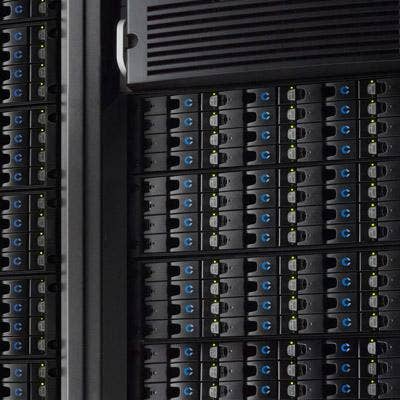
Compellent: Upgradable As Storage Requirements Grow And Grow
Compellent’s Storage Center 5 storage virtualization appliance scales according to customer requirements to provide disaster recovery and cost-effective automated tiered storage for enterprises of all sizes. It scales from six SAS hard drives up to 384 SAS drives with a mix of capacities and speeds within the same enclosure, and supports Fibre Channel or iSCSI front-end server connectivity, and includes virtual ports, which allow Fibre Channel or iSCSI connections to be shared or moved using software to provide flexibility while reducing the number of physical I/O ports by up to 50 percent.
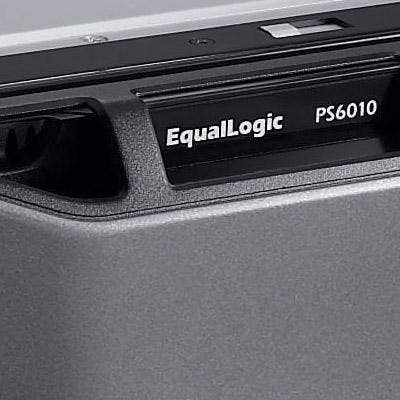
Dell: iSCSI Kingpin Thanks To EqualLogic
Dell is the top supplier of iSCSI storage, a mainstream product for midmarket customers. The Dell EqualLogic iSCSI SAN appliances include the PS-4000, which scales in capacity between 9.6 TBs and 19.2 TBs, and the PS-6000, which scales to 768 TBs and can be optimized for performance or capacity. The acquisition of EqualLogic gave Dell a strong channel base on which to build its channel program.
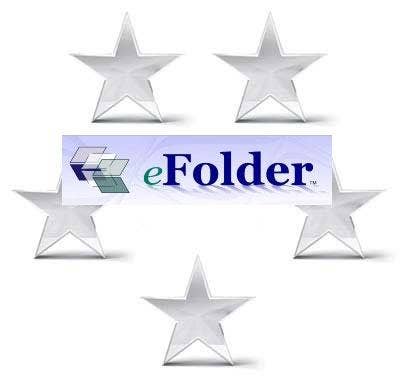
eFolder: Getting Customers Into The Storage Cloud
eFolder offers a low-cost entry point for solution providers and service providers to add a cloud-based storage service. The service, which does not have a name because it is made to be branded by the reseller, automatically encrypts and backs up customer data to the solution provider’s or a third-party offsite storage site. Customers can be set up for a free trial within a few minutes, and the solution provider starts getting recurring revenue as soon as the customer signs up for the service.
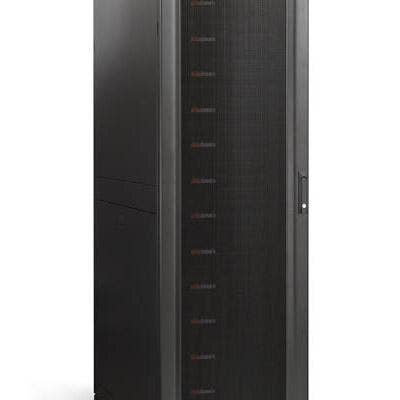
EMC: Deduping Midrange Storage
The EMC Data Domain DD8800 deduplication appliance cuts the amount of capacity required for backups by removing duplicate bytes of data in order to increase the efficiency of backups and replication for archiving and disaster recovery. The appliance was updated in April with double the capacity, letting it store up to 7.1 petabytes of data after deduplication. Also new is the ability to tie two units together into one even-larger dedupe system.
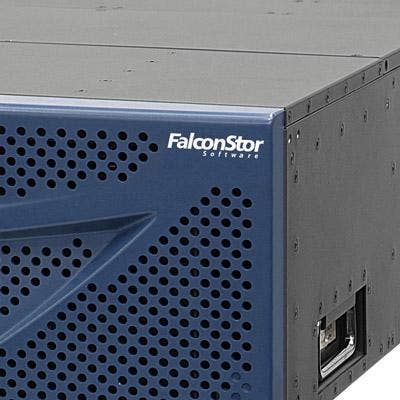
FalconStor: Integrated Storage Virtualization And Protection
FalconStor’s IPStor platform is the common base for four integrated enterprise storage solutions. IPStor includes FalconStor Virtual Tape Library (VTL), a disk-based solution that backs up and manages data as if it were a tape library; FalconStor Continuous Data Protector (CDP) for producing a series of point-in-time snapshots that allow granular recovery of data; FalconStor Network Storage Server (NSS) for virtualizing and provisioning storage across multiple disk arrays; and the FalconStor File-interface Deduplication System (FDS) scalable data repository.
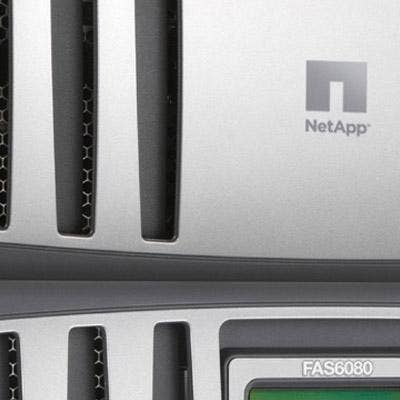
NetApp: Bringing SAN And NAS Together
NetApp, one of the first vendor to combine both iSCSI SAN and NAS in a single appliance, helps customers with excess storage capacity in their existing storage arrays from multiple vendors virtualize that capacity with its V3100 open storage controllers. The V3100 treats data stored on other arrays as if they were stored on an dedicated NetApp storage appliance with such services as thin provisioning and deduplication for up to over 1.1 petabytes of data.
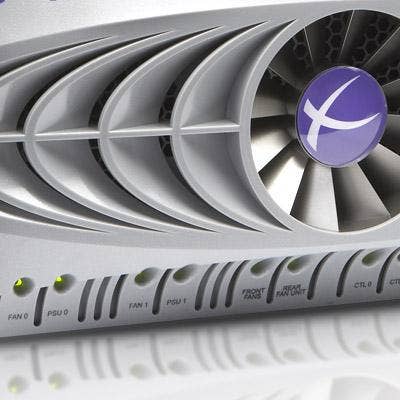
Nexsan: Making Low-cost Storage Work For All
Nexsan, which specializes in providing low-cost ATA, SATA, and SAS storage as an alternative to Fibre Channel arrays, counts among its midrange offerings the SATAboy array which packs up to 14 TB of SATA hard drives in a 3U space, and its cousin the SATAbeast array, with up to 84 TB in a 4U space. Both include dual iSCSI and Fibre Channel connectivity. They include Nexsan’s AutoMAID function, which can automatically put individual drives or RAID sets of drives into the idle mode when not used in order to cut power use.
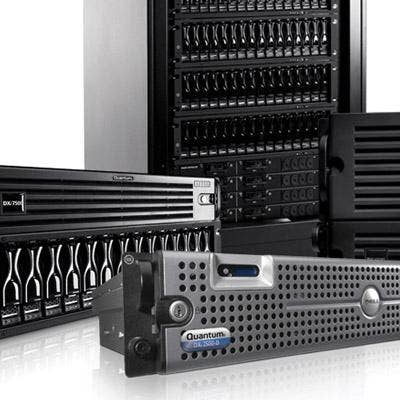
Quantum: Integrated Backup And Dedupe
Quantum provides midmarket customers a range of disk-based backup appliances starting including its flagship model, the DXi7500, which can be ordered with 22 TB to 220 TB of usable capacity. The DXi7500 includes built-in data deduplication, which Quantum claims actually reduces the amount of capacity required to store the backups by up to 90 percent, giving it a logical capacity of up to 20 times its usable capacity. It also features Symantec’s Open Storage Technology (OST) API, which takes the overhead out of the backup process
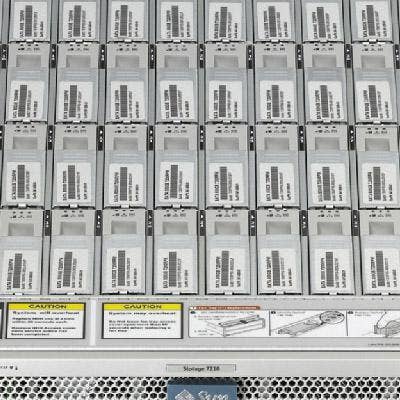
Oracle/Sun: The Storage Is The Server
Prior to its acquisition by Oracle early this year, Sun Microsystems’ was one of the first vendors to combine disk and SSD storage capacity into a high-performance server-based platform as part of its Open Storage architecture in its Sun Storage 7000, also known as Amber Road. The Sun Storage 7000 scales to up to 288 TBs of data, and has options for high-availability clustering, flash memory acceleration, and SSDs.
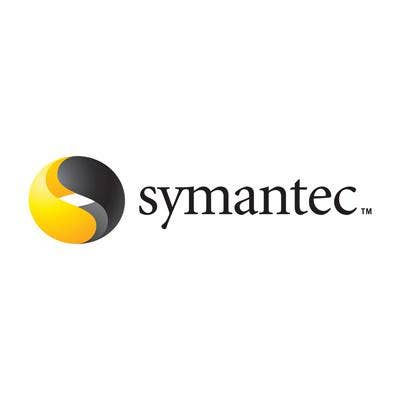
Symantec: Building On Data Protection As A Platform
The latest edition of Symantec’s popular Backup Exec data protection software for midrange customers now has integrated optional deduplication technology and new support for VMware and Microsoft virtualization technologies. It also includes Symantec's Enterprise Vault technology, which allows the archiving of Microsoft Exchange e-mails and files into a separate archive. Also new is granular data recovery technology for use in VMware vSphere 4 and Microsoft Hyper-V virtualized environments that allow individual files to be restored to either virtual or physical servers.